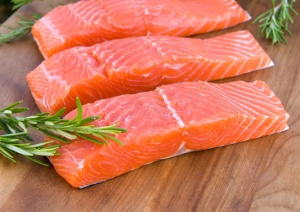Having just got back from Europe with it’s amazing weather, I for one am struggling to adjust to the cold temperatures together with the rain! 🙁
However, don’t feel sad or get the blues…
Winter can make us feel more sluggish, lethargic and even feel a little flat. This can make us crave high carb foods for comfort. However, in the long term these comfort foods can actually make us feel more sluggish, lethargic and down when we start to put weight on! [1]
Food is powerful at influencing our mood. It affects the body’s metabolism, hormones and neurotransmitters and these in turn influence our emotions, concentration and energy. [1a]
Proteins, carbohydrates and vitamins in foods work to keep our metabolism, hormones and neurotransmitters in check, which also balances our moods. By contrast, consuming too much sugar, alcohol and caffeine can cause low moods by bringing on an inflammatory response in the nervous system. [1a]
“Food is a powerful tool that’s often overlooked in its effect on mental health.” [2]
So, here are some mood enhancing foods to fight the darker days…
The colour itself is enough to brighten a rainy day but swiss chard is also full of magnesium, which is essential for the biochemical reactions in the brain that boost your energy levels. It’s also a calming mineral that gets depleted when we’re stressed. [1]
Leafy greens, like spinach are also high in vitamin B6 essential for a good mood and reduces stress by affecting the adrenal glands and other B vitamins helping increase serotonin. [1a] [2] Also potassium, calcium helping our sleep cycles, tired muscles and stress hormones all critical to a good mood. Iron also helps energy levels. [2]
Mushrooms, oats and avocados are also high in B vitamins.
Almonds and pumpkin seeds

Nuts and seeds are high in magnesium, essential for mood and they also contain sleep-enhancing gamma aminobutryic acid and tryptophan helping our mood. For people experiencing more than average stress, a study in Medical Hypotheses suggests supplementing with 150 milligrams of magnesium a day to elevate moods. [1]
Magnesium deficiency can cause chronic fatigue, increased muscle tension, an irregular heartbeat, insomnia, and restless leg syndrome, which can all result in feelings of anxiety or depression. [2]
Seeds, beans and nuts are also high in zinc, which helps to turn omega-3 fats found in fish and seed oils into prostaglandins, which are vital for concentration.
A 2009 study in the Journal of Affective Disorders found that zinc helps improve treatment outcomes in patients who are resistant to antidepressants.[2]
Mussels
Mussels are loaded with some very high naturally occurring levels of brain-protecting vitamin B12, making mussels a very important food source, considering that a significant portion of the population is B12 deficient.
B12 helps to preserve the myelin sheath that insulates your brain cells, helping your brain stay sharp as you grow older.
B vitamins are essential to keep homocysteine low, which is an amino acid produced by the body, and high levels can be a predictor of depression, especially in women, according to a study published in Archives of General Psychiatry.[2]
Blue potatoes

Blue potatoes are high in anthocyanins, powerful antioxidants that provide neuro-protective benefits such as bolstering short-term memory and reducing mood-killing inflammation. If you eat the skin you also get a great source of iodine, which is a master mood enhancer.
Grass fed lamb
Full of healthy fats including conjugated linoleic acid (CLA), this is a great meal to enhance any winter blues mood.
It’s also high in the amino acid tyrosine (as are eggs), which increases levels of the neurotransmitters dopamine and norepinephrine—your “get-up-and-go” brain chemicals. [2a]
Dark chocolate

This yummy substance, which I might be slightly overeating at the moment! :), provides an instant boost in concentration and mood and even improves blood flow to the brain, helping you feel more vibrant and energised. Go for the darkest organic (highest percentage of cacao) chocolate you can as it contains more antioxidants and magnesium. It also makes you feel full longer as it doesn’t have any butter fat like milk chocolate, that goes through the gut much more quickly making you want more.
A recent study published in the Journal of Psychopharmacology found that just a few ounces of dark chocolate a day results in better mood. [4]
I love the Pana chocolate. Phenylethylamine, a compound in dark chocolate, releases the same feel-good endorphins triggered by sex! (Just be sure to choose organic to avoid exposure to harmful pesticide residues.) You can buy this at the lovely Health Emporium! 🙂

However, caution eating too much at night, as if you’re like me, you’ll be running up and down the soft sand of Bondi beach instead of sleeping as it can be stimulating for many! 🙂
Greek yogurt
Proper calcium levels help you to have a little more get up and go as they alert your body to release feel-good neurotransmitters. Disturbances in calcium levels can produce anxiety, depression, irritability, impaired memory, and slow thinking.
The probiotics in Greek yogurt also help aid in digestion and can even ward off colds.
If you find yourself nervous or agitated for an unexplained reason, try reaching for an organic Greek yogurt from cows raised on grass pastures. Pastured dairy is higher in healthy fats, and, like grass-fed lamb, often contain higher levels of CLA, the healthy fat that reduces the effects of stress on the brain.
Greek yogurt is also high in vitamin D, which is a great happy hormone. 🙂 [6]
Asparagus

This vegetable is one of the top plant-based sources of tryptophan, which serves as a precursor in the production of serotonin, one of the brain’s primary mood-regulating neurotransmitters. High levels of folate also add to asparagus’s happiness promoting profile according to research showing that up to 50 percent of people with depression suffer from low folate levels.
Folinic acid plays a role in the production of brain chemicals in adults and Dr. Moyad links folate depletion with depression. In severe cases he recommends supplementing (500 micrograms [mcg] of folic acid or more) to reduce depression. [5][6]
Like tryptophan, it’s a necessary factor for creating neurotransmitters. It’s also good to add to the menu if you plan on drinking. The enzymes in asparagus are highly effective in breaking down alcohol in your system, preventing a hangover—and that can make anyone happy.:)
Honey

Packed with beneficial compounds such as quercetin and kaempferol that actually help clean up free radicals and reduce inflammation, honey is very important to maintaining a healthy brain.
Cherry tomatoes

All tomatoes are a great source of lycopene, a fat-soluble phytonutrient that helps protect vital brain fat and actually stops the build-up of pro-inflammatory compounds linked to depression. Because lycopene lives in tomato skins, the best way to get it is through cherry tomatoes, whose smaller surface area means you’ll eat more skin than if you eat a full-size tomato, according to Dr. Ramsey. [5]
To maximize the amount of lycopene your body absorbs, drizzle some olive oil over the tomatoes, and enjoy! I have certainly had my fair share of lycopene in Spain and Italy! Loved the Mediterranean diet!
The Mediterranean diet actually scored higher on markers of mental health than their counterparts who ate a more Western diet due to high quantity of fruits and vegetables, whole grains, legumes, nuts, fish and a moderate amount of alcohol and high omega-3 fats (found in oily fish), B vitamins and folate contributed.[6a]
Tomatoes are also high in chromium, which helps to control blood sugar levels and essential for insulin production thus helping to maintain a stable mood. Chromium also increases serotonin. According to a 2003 study in Biological Psychiatry, if you’re often tired and prone to mood dips (also known as atypical depression), but are not chronically depressed, chromium deficiency might be a factor. The study found that 70 percent of people with atypical depression showed improvement after taking chromium supplements for eight weeks.[2]
Eggs

Eggs are loaded with mood-promoting omega-3 fatty acids, zinc, B vitamins, and iodide, and they’ll keep you full and energized. The yolk is also high in vitamin D, known to improve mood.[2]
Ensure you pick eggs from hens raised on pasture, where they can exercise and eat a diet of grass and bugs, supplemented with organic grains. It’s ideal to buy from local farmers you trust. Don’t trust eggs advertised as “omega-3 enriched” or “free-range,” as these claims aren’t always true.
Wild salmon

Another food rich in omega 3 fatty acids, helping in mood and depression according to The Lancet. Dr. Moyad suggests that taking 1,000 to 2,000 milligrams (mg) a day to help with depression.[6]
If you want to boost your omega-3s naturally, Moyad recommends a diet rich in fish. Wild (not farmed) salmon, mackerel, anchovies, sardines, and trout are all excellent sources.[6]
Wild salmon baked is also a great natural source of vitamin D (farmed salmon less so) as are tuna, trout, mushrooms and egg yolks and greek yogurt.
Many are deficient due to being slightly overweight as well as not getting enough sunlight. If you lose just 5 percent or more of your body weight, your vitamin D blood levels will shoot up.[6]
Vegetarian or vegan?
Chia seeds, flaxseeds, flaxseed oil, canola oil, and walnuts are all rich in omega-3 rich alpha-linolenic acid (ALA). [7]

The Harvard Nurses’ Health Study of almost 77,000 women after 18 years of follow-up found a reduced risk of depression in those with moderate intakes of plant-based omega-3 fatty acids.[6]
Coconuts

I love the brain-healthy coconut. Its full of healthy medium-chain triglycerides (MCTs) that fuel better moods, giving you an immediate energy boost without fear of sugar crash. Its electrolytes helps us to stay alert and focused and hydrated.
Turmeric

Turmeric contains a polyphenol called curcumin that has been linked to a better mood and even compared to antidepressants, according to a 2012 review article in Nutritional Neuroscience.
I love mixing turmeric, cinnamon and ginger with chai spices and coconut milk for a warming glow milk on a cold rainy day.
Green tea

Green tea also contains a similar polyphenol, EGCG (epigallocatechin gallate)—that may alleviate stress and depression. People who drank 4 or more cups of green tea daily, in an American Journal of Clinical Nutrition study, were 44 percent less likely to have depressive symptoms than those who drank just 1 cup a day (2 to 3 cups was also beneficial).
Other Winter tips
Bone broths, soups, lentils and rice are all other comfort, yummy nutritious foods to consume during these colder days.
Light therapy and exercise can also help. Get outside into natural light, walk in nature, get the endorphins flowing and the lungs going to help dispel that lethargic, flat feeling.[8]
I am going to get my natural light now while it’s not raining to help my hypothalamus readjust to the Australian timezone and reduce my jetlag and lethargy!
Stay happy and warm and dry! 🙂
Sources:
1 Dr Malone ‘Tips to beat the winter blues’
1a Dr. Nishi Dhawan, who is co-founder (along with Dr. Bal Pawa) of the Westcoast Women’s Clinic in Vancouver.
2 Patrick Holford ‘The Feel Good Factor: 10 Proven Ways to Boost Your Mood and Motivate Yourself
2a Bryce Wylde, Wylde About Health
3 Maria Rodale ‘5 Surprising Winter Health Tips’
4 Journal of Psychopharmacology ‘Cocoa polyphenols enhance positive mood states but not cognitive performance: a randomized, placebo-controlled trial’
5 Dr. Ramsey in The Happiness Diet
6 Mark A Moyad ‘Raise Your Vitamin D Without Pills’, Rodale
6a European Journal of Clinical Nutrition 66, 360-368 (March 2012) ‘Adherence to the Mediterranean diet and quality of life in the SUN Project’
7 Emily Main ‘Six Ways to Beat the Most Depressing Days of the Year’, Rodale
8 Brierley Wright ‘Eat to Beat the Winter Blues’




